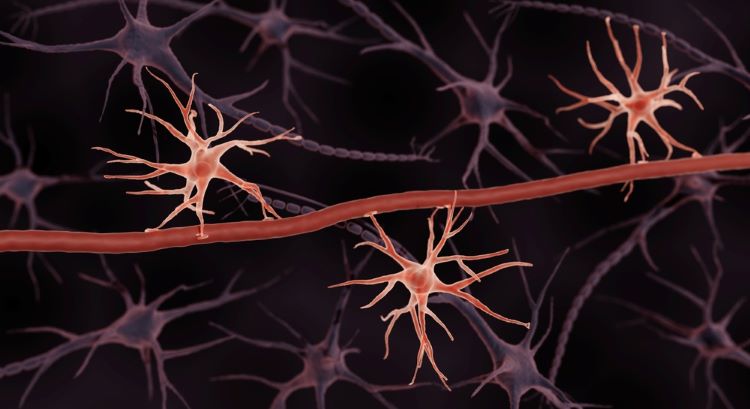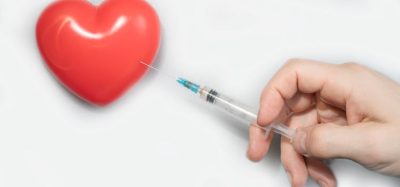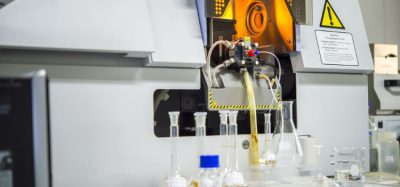Novel device opens blood-brain barrier to deliver chemotherapy
Posted: 3 May 2023 | Catherine Eckford (European Pharmaceutical Review) | No comments yet
A novel ultrasound technique opened the blood-brain barrier to successfully deliver chemotherapy to glioblastoma patients in a first-in-human trial.


The blood-brain barrier (BBB) in glioblastoma patients was opened temporarily using a novel, skull-implantable ultrasound device to deliver chemotherapy to the brain in a first in-human trial.
Scientists at Northwestern Medicine in the US showed that opening the BBB led to an approximately four- to six-fold increase in drug concentrations in the human brain, results from the study found.
Two chemotherapy drugs, paclitaxel and carboplatin were injected intravenously during the four-minute procedure. The scientists observed that using ultrasound and microbubble-based opening of the blood-brain barrier is transient, allowing the blood-brain barrier integrity to be restored within one hour after this procedure in humans.
This study was the first to describe how quickly the BBB closes after sonication. Previous human studies showed that the blood-brain barrier is completely restored 24 hours after brain sonication. Most of the blood-brain barrier restoration happens in the first 30 to 60 minutes after sonication, the Northwestern scientists discovered.
Temozolomide, the current chemotherapy used for glioblastoma does cross the blood-brain barrier, however it is a weak drug, stated lead investigator Dr Adam Sonabend, an Associate Professor of neurological surgery at Northwestern University Feinberg School of Medicine and a Northwestern Medicine neurosurgeon.
Dr Sonabend added that in previous studies that have injected paclitaxel directly into the brain of patients with glioblastoma, results were promising in terms of efficacy. However, the direct injection was associated with toxicity such as brain irritation and meningitis.
Delivering chemotherapy using ultrasound
Yet with this novel technique, which delivers microbubbles via ultrasound to open the brain’s protective barrier, the trial was the first to successfully quantify the effect of ultrasound-based BBB opening on chemotherapy concentrations in the human brain, according to the researchers.
Since there are currently no effective treatment for glioblastoma, the study “potentially [offers] a huge advance” for these patients, according to lead investigator Dr Sonabend.
In another first, the study reported that using a novel skull-implantable grid of nine ultrasound emitters opens the BBB in a volume of brain that is nine times larger than the initial device, a small single-ultrasound emitter implant.
To be effective, this approach requires coverage of a large region of the brain adjacent to the cavity that remains in the brain after removal of glioblastoma tumours, so this is an important finding.
How was the procedure performed?
In the Phase I clinical trial reported in the paper, patients underwent surgery for resection of their tumours and implantation of the ultrasound device. Patients began treatment within a few weeks after the implantation.
Patients were awake during the treatment and were able to go home after a few hours. The treatment was shown to be safe and well tolerated, with some patients getting up to six cycles of treatment.
Scientists escalated the dose of paclitaxel delivered every three weeks with the accompanying ultrasound-based blood-brain barrier opening. In subsets of patients, studies were performed during surgery to investigate the effect of this ultrasound device on drug concentrations.
This study “opens the door to investigate novel drug-based treatments for millions of patients who suffer from various brain diseases,” Sonabend concluded. The findings will allow optimisation of the sequence of drug delivery and ultrasound activation to maximise the drug penetration into the human brain, the authors noted.
The research was published in The Lancet Oncology.
Drug delivery techniques for bypassing the blood-brain barrier
Results from another Phase I study, also published in the Lancet Oncology (October 2022), bypassed the blood-brain barrier and deliver chemotherapy to brain cancer patients using a different technique.
Related topics
Anti-Cancer Therapeutics, Chemotherapy, Clinical Development, Clinical Trials, Drug Delivery Systems, Drug Development, Drug Safety, Medical Devices, Research & Development (R&D), Technology, Therapeutics, Ultrasound









